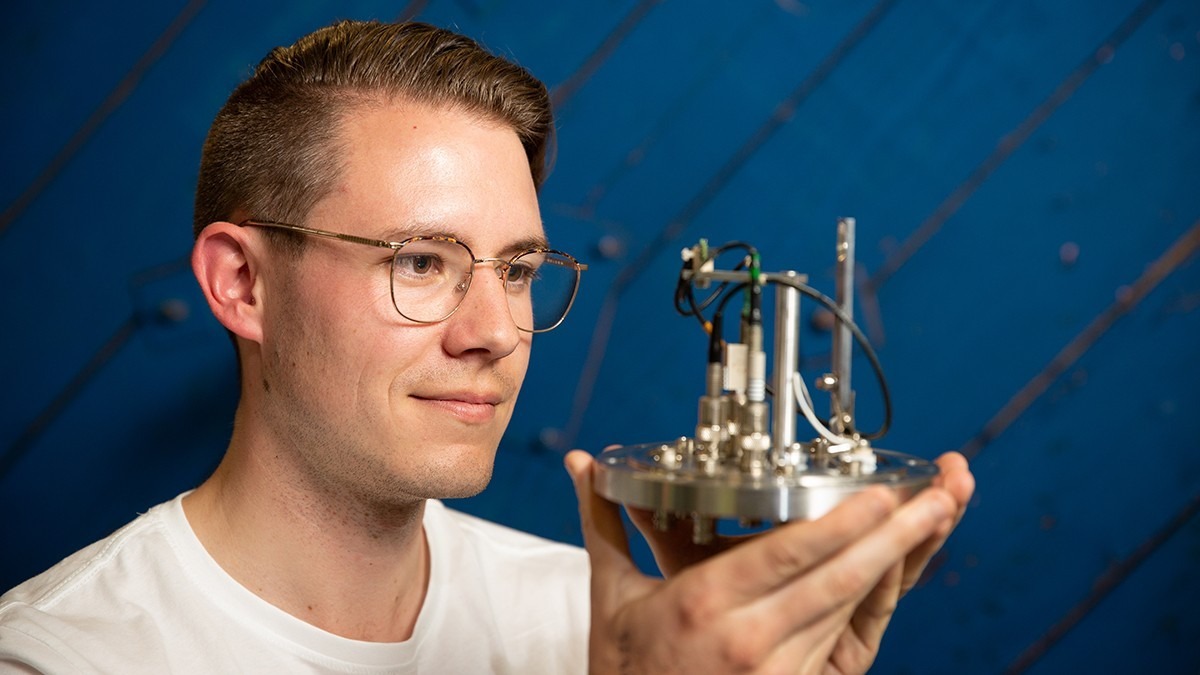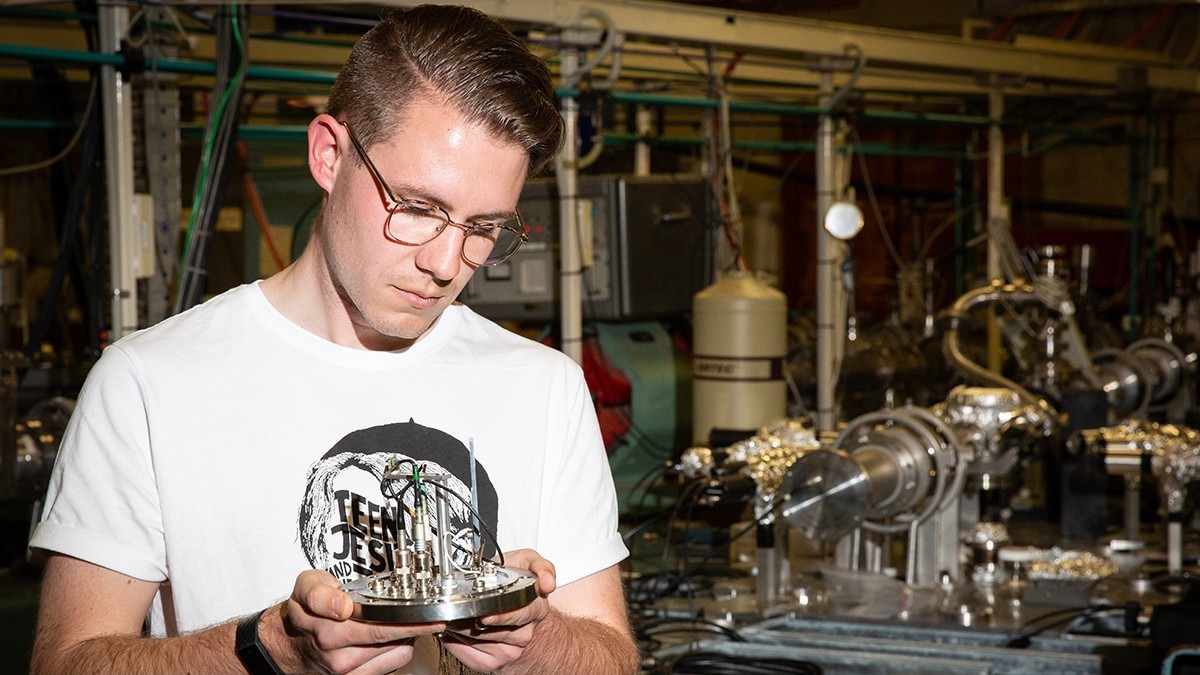A chance encounter leads to the dark side
A chance meeting changed Lachlan McKie’s direction unexpectedly towards the study of Nuclear Physics and dark matter.
Lachlan was looking for a supervisor for Astronomy research, but accepted an invitation from Professor Andrew Stuchbery to come and check out the Nuclear Physics Department in the Research School of Physics.
“I found it so interesting that I never left!” Lachlan says.
“It’s widely misunderstood in the community, it has so many fundamental uses that are shied away from because of the words ‘nuclear’ and ‘radiation’.”
Lachlan said the best thing for him has been the flexibility: outside of the hard science courses he has taken electives in science communication, environmental science and policy and strategy “to study the ramifications of the science”.
The opportunity to engage with students and academics from other Colleges gives a broader perspective of how the science is reflected in society and the environment, says Lachlan.
“I’ve had a lot of ideas challenged, and I’ve grown both as a person and academically, as a result of the large number of opportunities.”
Course Convenor Professor Greg Lane says the course has attracted people from diverse backgrounds because nuclear physics is used in such a broad range of areas.
“One student makes nuclear pharmaceuticals, others work in non-proliferation for the government or in radiation safety for mines,” he says.
“It’s not all about nuclear power.”
Lachlan says a highlight has been the excursions, such as to ANSTO in Sydney and a range of different renewable energy installations.
Being part of the advanced stream has given Lachlan the chance to be part of a larger research project using the ANU Heavy Ion Accelerator, developing new detectors for particles.
It’s a direction he’s now hoping to continue with, perhaps going into dark matter research.
“I’d like to work on some of the fundamental questions of the Universe,” Lachlan says.
Find out how you can cross to the dark side too.


